How Do You Fight Fear?
Our sudden shift into a new normal feels a lot like the challenges I faced when understanding my OCD.
Written by Andrew Cannizzaro
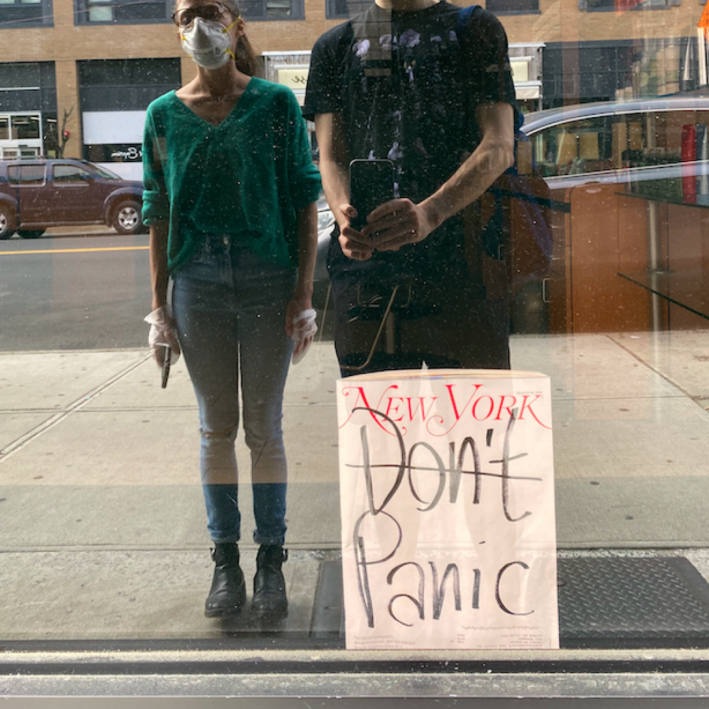
01 The current state of the world can cause a lot of overwhelming emotions, especially fear.
02 For Andrew, his history with OCD has given him experience with managing these difficult feelings. Now, he's sharing the tools he’s learned throughout his treatment to help others cope with the world.
Right now, even as I write these words, I feel afraid.
I’m worried about the state of the world; from the pandemic, to our democracy, to the outrage I feel due to our country’s treatment of Black Americans and BIPOC in the US. I’m terrified of the direction our climate is headed, and scared of what our lives and society will look like three months from now. A year. Ten.
Fear is deep within the atmosphere around us, pressing down upon our minds and adding an extra weight on top of everything else going on. But when it comes to fear, I can assure you of one simple truth that always remains, no matter how strong, dark, or hopeless the fear feels.
Fear is just a feeling.
I know this because for me, it’s an oddly familiar place. Staring into the abyss that near total fear creates when it consumes your life. It’s a darkness I have come to understand, no matter the content of its shadows. It’s all because of a terrible time in my life when I discovered something about myself I had never known before: I have OCD.
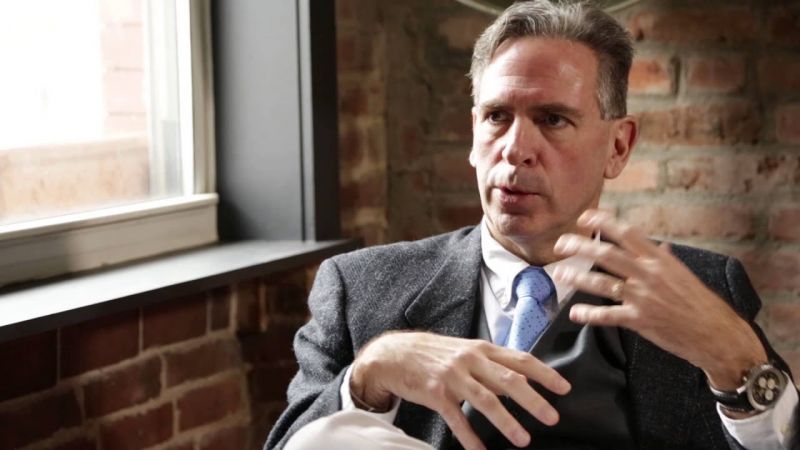
Dr. Phillipson Talks Science, Symptoms & Treatment of OCD
“You mean that thing when you like to be really organized? Or have to check to make sure your stove is turned off? Or flip a light switch exactly 37 times?”
No. Not that. That’s what inaccurate media portrayals of the disorder lead people to believe it’s all about. Sure, those things have a kernel of truth in them, but they are far from what the disorder is at its core. The heart of Obsessive Compulsive Disorder is filled with one thing: fear. In learning how to manage OCD you understand not only how to face fear but also how to embrace its existence.
The journey of embracing fear did not happen overnight, and there were many trials along that road that brought me to this moment. At the time, I felt fragile, broken, and wildly misunderstood, but now, I often turn to those lessons I learned at the height of my anxiety and share them with others. The reality is, we spend our lives managing fear. When you begin to look at this journey in such a way, you discover the strength you are amassing as you go along. Perhaps, in such a time of crisis and fear, we have more to offer our fellow citizens than we ever could have imagined.
<>
Five years ago, I found out I had OCD. I like to say I found out by accident, because, well, I did. I experienced a complete mental breakdown, during the start of which I didn’t even know what was happening to me. In that understanding, I had to learn how to completely rethink the way my brain functions and in doing so, how I live my life. It was a painful and often terrifying experience, full of unknowns with no guarantee that my life would be any better any quicker.
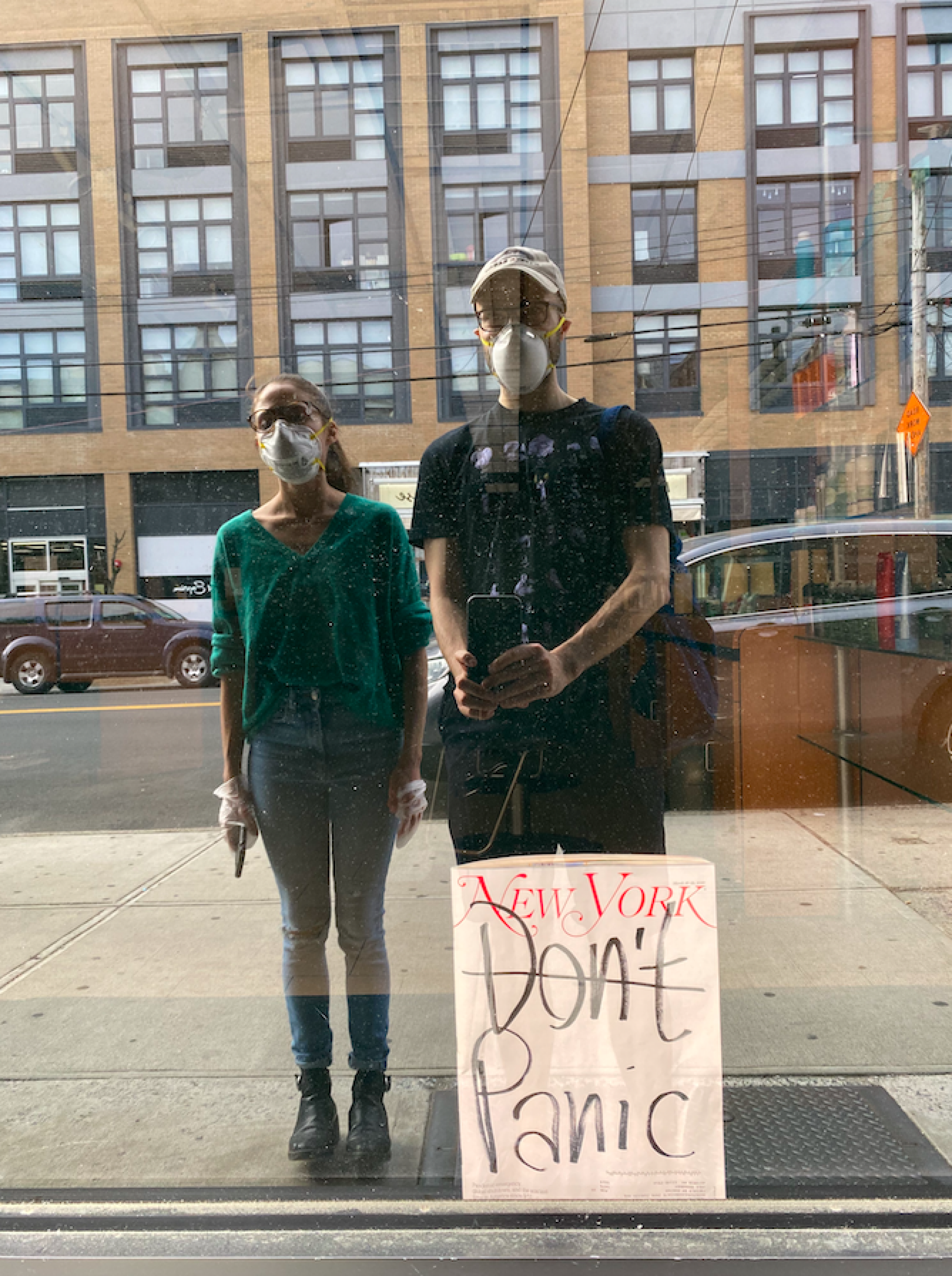
How many of you feel the same way right now with the pandemic?
How many of you have woken up and before you can even think about anything else, are hit with a heavy weight of fear and concerns for your future? I know there have been multiple times over the past seven months where I have woken up and felt immediately hit by real fear. It’s a feeling I partially resent, because it’s a feeling I secretly hoped I would never feel again. But as we talk about fear, there is a distinction to be made between real fears you may face now, and the intrusive thoughts I would experience with my OCD. Think of it this way:
You’re standing on the subway platform next to someone and as the train comes your brain pings you with the thought “what if I pushed that person?” You know you’re not a violent person and you dismiss the thought as random brain noise. But for someone with OCD, their brain gets stuck on that thought and they ruminate for hours on end wondering why they would think that and subsequently trying to prove to themselves that the thought isn’t true.
It’s a devastating, often debilitating disorder. When my OCD first exploded in my face, I spent six straight months ruminating on one intrusive thought. I would wake up, spend all day focused on it, go to bed, rinse, and repeat. It felt like the only thing that kept me going, through all the mental and subsequent physical exhaustion, was fear.
A drawing I did on January 31st, 2016 to try and represent how I felt:
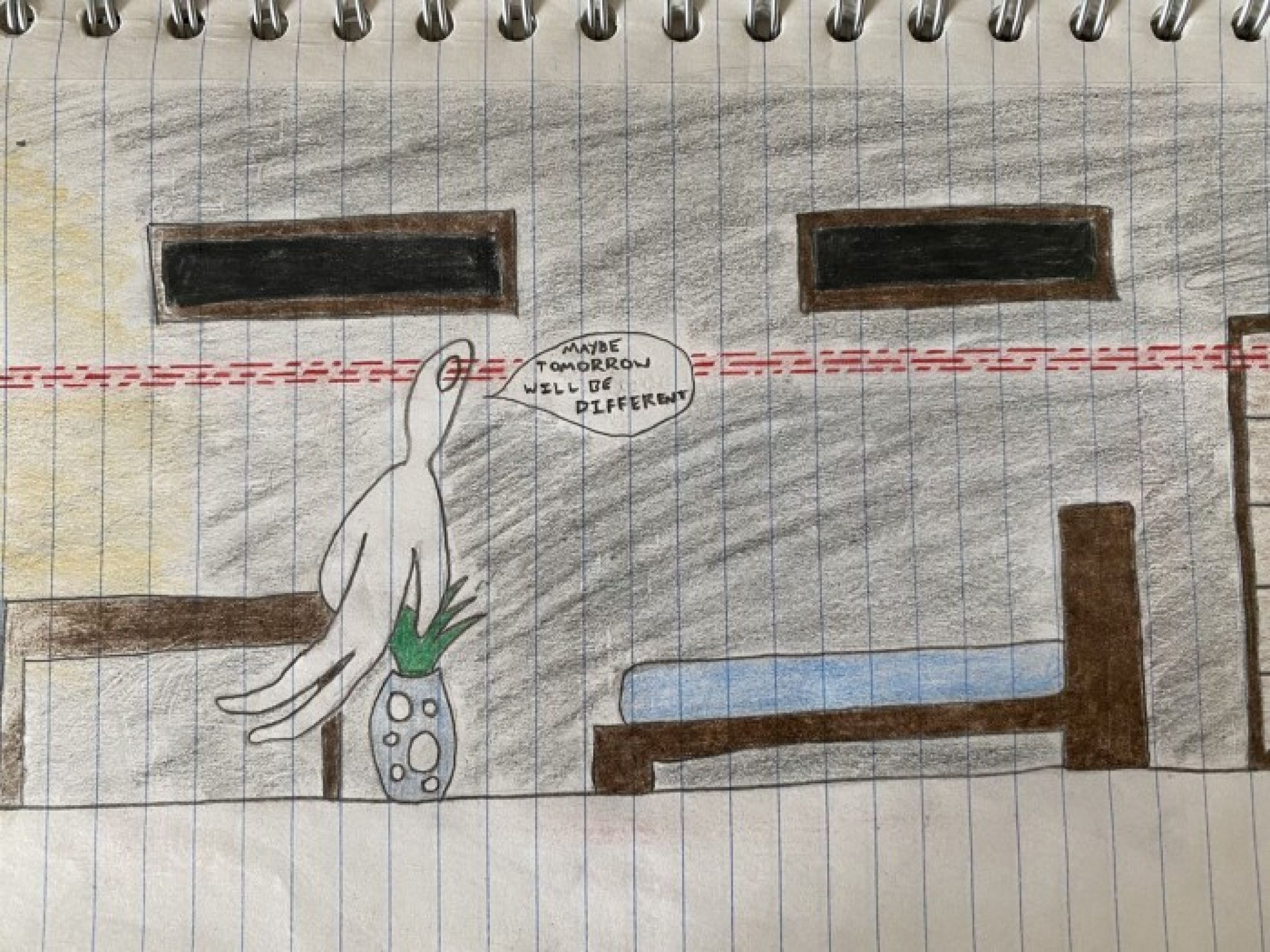
Even though the thought I faced was irrational, the feeling of fear was just the same as it would be had I been facing something real. In living with fear, I came to understand that it has just one source of power: you. This doesn’t mean you’re at fault for how you feel; rather, you have the capacity to be in the driver’s seat of your life and invite fear along for the ride.
This action was the basis of my journey with Cognitive Behavioral Therapy. According to the American Psychological Association, CBT is based on several core principles: 1) Psychological problems are based, in part, on faulty or unhelpful ways of thinking, 2) Psychological problems are based, in part, on learned patterns of unhelpful behavior, and 3) People suffering from psychological problems can learn better ways of coping with them, thereby relieving their symptoms and becoming more effective in their lives.
The APA also notes that “CBT treatment usually involves efforts to change thinking patterns” including “facing one’s fears instead of avoiding them.” In learning how to do that, I had to stock a tool belt full of items to deploy when fear came knocking. I couldn’t just rely on “courage” (we’ll get back to this idea later). I had to have actionable steps to take to manage fear. For the purposes of this article, I gave these tools actual names:
The Sledgehammer — Breaking Down the Journey
Waking up every day used to be a nightmare. I would just lay in bed, wide-eyed, gripping the edges of my blanket as my mind raced. In order to get up I had to learn to break down the day’s journey. The first task of the day didn’t become going to work. It became sitting up. Then opening my blinds. Brushing my teeth. Taking a shower. I had to look at each thing in front of me as my only goal for the moment. There were certainly times that even the act of getting up felt like too much, but if I could just do that, then I had built a small sense of momentum. If I could sit up, I could surely open my blinds. If I could open my blinds, perhaps I could brush my teeth. If I could brush my teeth, I could take a shower, and ultimately get myself out the door.
It was hard to accept that I didn’t have the capacity to do more. I had been so used to feeling one way, that now when I had the energy to do less, I felt like I was weak. But the circumstance is not about strength, or lack thereof. I had to learn not to frame everything like a battle to be won or lost, it was simply about trying. About building resolve. Every step, whether one inch or one mile, was still a step forward.
The Shovel — Making Room for Fear
In doing all of these things, it needs to be said that I didn’t have to “feel” good about doing them, I just had to do them. In breaking down the journey, I wasn’t ridding myself of fear or negative feelings, I was just trying to make things easier to do while taking fear along with me. I had to actively tell myself “it’s okay to feel this way.” It’s such a simple concept, but we never really learn to let ourselves feel what we deem to be “bad feelings.” It’s okay to feel fear, sadness, or despair, but that doesn’t mean those feelings have to drive you.
We often talked in group therapy about being a certain percentage of ourselves. Most of the time, we’re operating at around eighty percent, and that’s pretty great. Rarely, if ever, are we at one hundred percent capacity. But when we feel depleted, when we feel like only twenty or even ten percent of ourselves, we feel like we can’t do anything. The reality is, even if you make it through your day at just ten percent, that’s huge. You may not “achieve” what you thought, or even what you wanted, but that’s not the goal. The goal is simply showing up.

The Stopwatch — Pausing Fear
All that being said, sometimes, it’s all too much. Sometimes we don’t have the capacity to even do anything at ten percent and just give in to fear. With my OCD, this would manifest in a constant need for reassurance that whatever irrational fear I had wasn’t real. The more I sought that reassurance, the worse my anxiety would become. I was signaling to my brain that this irrational concern was in fact something to be worried about. I’ve felt myself gravitating toward the same feelings when it comes to so many uncertainties about the future. Perhaps this manifests in doom scrolling on Twitter or refreshing the news endless times, but at the end of the day, these actions will only make me feel worse.
It’s hard to avoid them though, especially when we have less and less human interaction in our lives. When it came to reassurance seeking, instead of diving right for it, I would ask myself “Can I wait just five minutes?” And then in five minutes I would say “Can I wait fifteen?” And then in thirty, an hour, and so on. In punting that action further down field, I was able to essentially desensitize my brain to the fear. I was able to prove to myself that I could live with the fear for longer than I believed possible.
The Script — Changing the Narrative
Perhaps one of the most enduring lessons I learned in my journey with therapy was how I had to change the narrative in my own mind. I used to attend individual and group therapy at the Center for Cognitive Behavioral Therapy in New York City. It was there I met the people who would completely change my life, including the therapist I still see to this day. I met people in group therapy who I now call friends and still talk to for advice. It was here that I learned how to separate my own voice from my brain’s voice.
When did anyone ever teach you that your thoughts are not always representative of who you are? I think for most of us the answer is “never.” What ends up happening as a result of that is that we become accustomed to believing every negative thought or feeling that comes our way. When we tell ourselves we’re stupid for making a mistake, or too weak because we failed at something, we believe those words because they came from ourselves, right?
That couldn’t be further from the truth.
How many times have you told yourself that you’re failing at something these days because you don’t have the energy anymore? How often have you believed you’re not a good enough parent because you struggle to balance working from home and childcare? When was the last time you told yourself “I can’t do this” because the world is just too much right now?
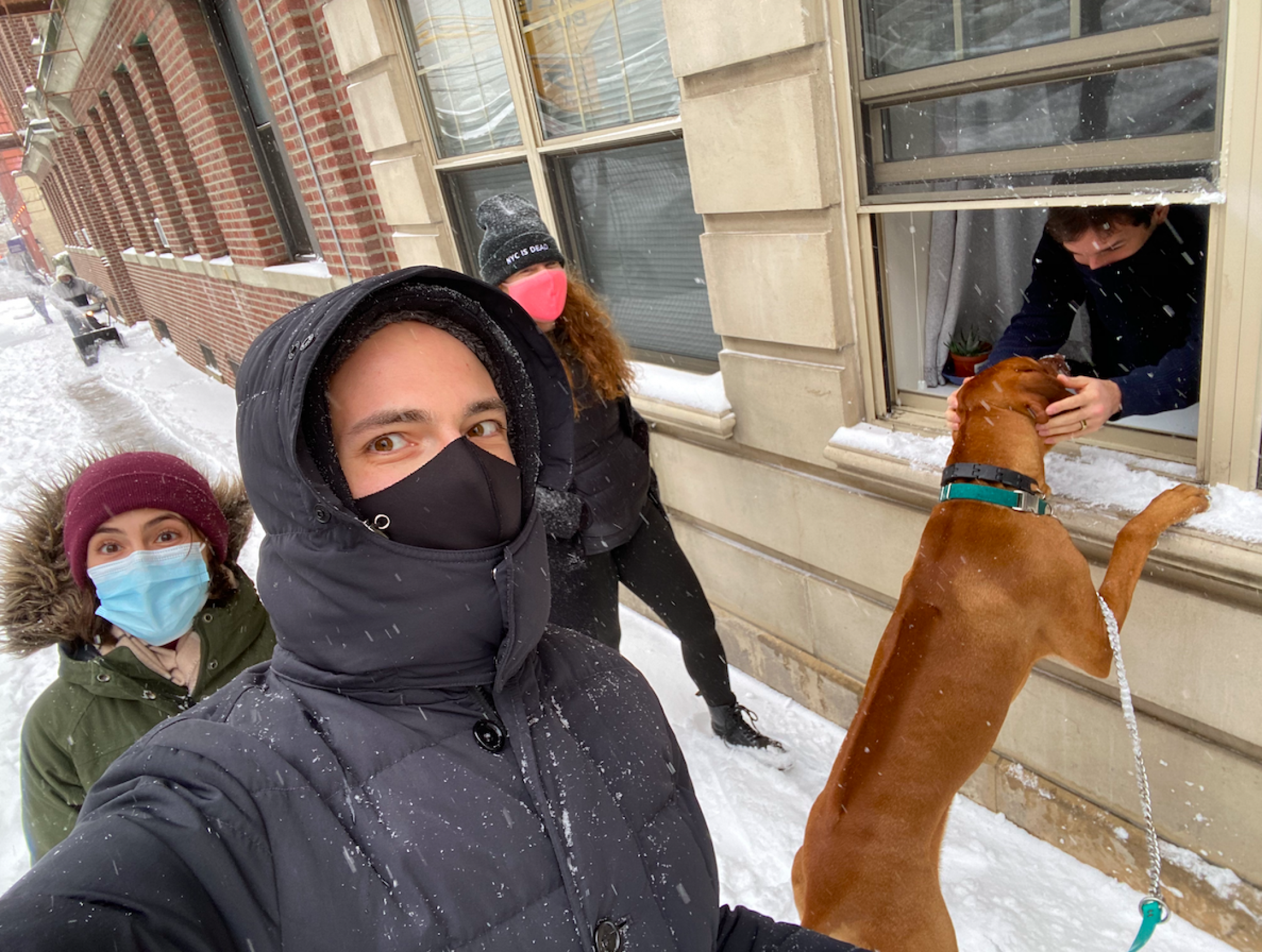
We were not built to exist under these circumstances the same way we would have done so beforehand, yet we are conditioned to expect the same of ourselves despite that truth.
Whether it’s internalized expectations, or pressures from work and life, many of us are struggling to give ourselves a break. In doing so, we become more susceptible to the darkness of fear. This is where we have to change the narrative. This is where we have to remember that the way we speak to ourselves is within our control.
It’s okay that I didn’t do that task to the best of my ability, I’m exhausted nearly every day.
I’m trying really hard to be a caretaker alongside all my other responsibilities. I should give myself more credit.
I stayed in bed an extra few hours because I'm burnt out and it's what my body needed.
I simply got through the day and that’s enough.
These tools, the Sledgehammer, the Shovel, the Stopwatch, and the Script, are just a few of the things I’ve learned. They are by no means the only tools available to manage fear, but they helped me in my journey to get to where I am today. Sometimes it’s hard for me to even look back and remember the person I was when I was truly lost within my anxiety. At the depths of my despair, I could recall one moment that seemed to define how my entire existence felt at that time.
I was walking to work when I thought: I know I used to have other thoughts. I know I used to think about other things when I walked to work. But I can’t remember what they are, and I can’t remember the last time I thought about anything else except for this one intrusive thought.
I sincerely believed, with my entire heart, that my intrusive thoughts would be the only thing I would think about for the rest of my life, until I died. I reached the point where I felt such despair, such overwhelmingly dark, unending pain, that I actually wished I were dead. I thought the only way to get peace, the only way to stem this tide of intrusive thoughts, was to die. I could not see any other way out.
But that’s the thing about fear. About uncertainty and the endless unknown. It obscures us. It is so all consuming that it seems as though there is nothing else for us to focus on except for despair and defeat. When we try to search for courage to fight it, we sometimes feel like we fall short. However, it was something one of my fellow group members once told me that changed my perspective on that idea.
We were walking to the subway after one night, discussing our challenges. I was still early on in my therapeutic process, trying to understand how to manage my OCD and intense anxiety. I was still trying to control my fear, feeling like I was losing a never ending battle. So, I asked him, “How do you fight fear?”
“By letting necessity do the work of courage,” he responded.
I didn’t entirely understand what he meant at the time. I couldn’t wrap my head around the concept. I was so consumed by fear and so eager to find courage within myself, that I felt I had none. It was only years later that his meaning dawned on me. Fear, courage, happiness, love; these are all feelings that we search for or try to avoid in our lives. But the thing about feelings is when we try to find them, they often evade us because of the expectations we place upon their meaning.
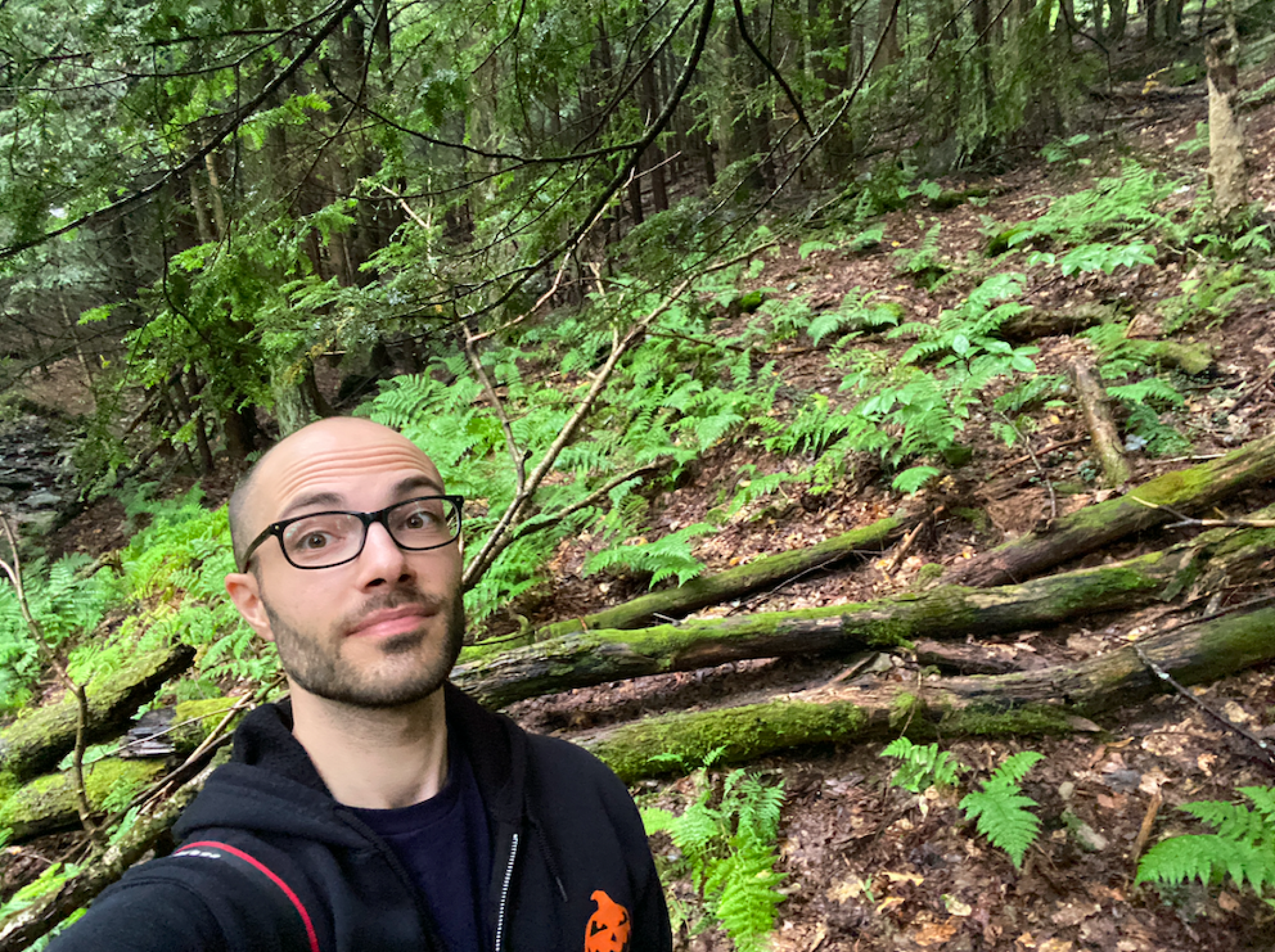
Instead, we should focus on the things we need and the choices we can make to take steps forward on unfamiliar paths. We will not know whether these actions will grant us courage or happiness, but that’s not the point. The point is the leap of faith. To do what you can to prepare yourself for what’s ahead, while making sure you take the actual step.
The world is afraid right now. It is a time of fear, uncertainty, and endless unknown. It is a collective, conscious anxiety that is living and breathing amongst all of us. We all want to know if there is a way out of this. How are we going to make it through something so completely devastating? We yearn for the old world we knew while struggling to understand what this new world will be.
But the reality is, there is no old world, and there is no new world either. There is only this world, as it lives and breathes, right now. It is full of challenges, big and small. Sometimes we fail, other times we succeed. What matters most is that we try. That we always try. Because there is only one way out of any challenge — it’s through.
Support our work
We’re on a mission to change how the world perceives mental health.



















